The fourth year of the Sentinel Apiary Program was another great success! The program included 64 beekeepers sampling 418 colonies, for a total of 1,901 samples!
You can view the whole 2018 Summary Report here.
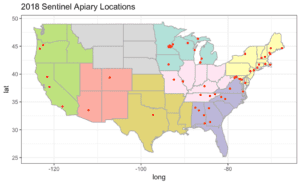
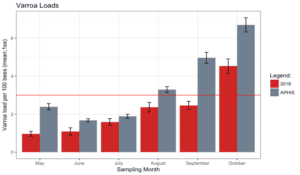
We are very excited to share that 2018 Sentinel Participants had significantly lower Varroa loads than the historical national average!
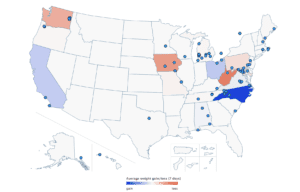
Our Hive Scale Map also underwent extensive remodeling this year, and now includes Varroa data as well as showing a net weight gain or loss per state over the past week to provide even more real time context.
With three years of extensive colony health data now collected, we are finally ready to begin asking some exciting questions. A couple of innovative ways we are using Sentinel data are:
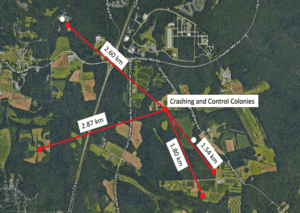
Investigation of inter-apiary Varroa transmission. Sentinel data revealed rapid increases in Varroa populations that cannot be explained by normal mite reproduction, indicating a possible outside source of mites. This has led us to begin investigating the extent to which Varroa from highly infested/crashing colonies spread to nearby apiaries across the landscape.
Correlation of internal physical symptoms to mortality using historical Sentinel samples. We save~10% of all Sentinel samples as a historical record, and recently a PhD student in our lab, Anthony Nearman, has made exciting headway in correlating internal abnormalities (such a sting gland swelling, see image) in these bees to colony mortality. This could pave the way for a new method of colony sampling to better predict mortality.
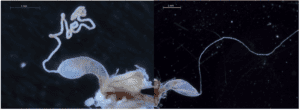
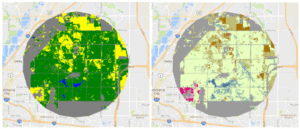
Collaboration with NASA-DEVELOP to investigate landscape effects on Sentinel colony health using NASA-Earth satellite imagery. This summer we had the amazing opportunity to work with NASA to develop a tool which can intake information about your Sentinel Apiary and show us a variety of landscape factors around it such as precipitation, soil moisture, and land cover. This will allow us to make correlations between the landscape, colony health, and how the effectiveness of management practices varies across space. A video about this work can be found here.
We are already recruiting for the 2019 season! If you would like to provide invaluable data while taking the best care of your colonies, learn more and sign up here!